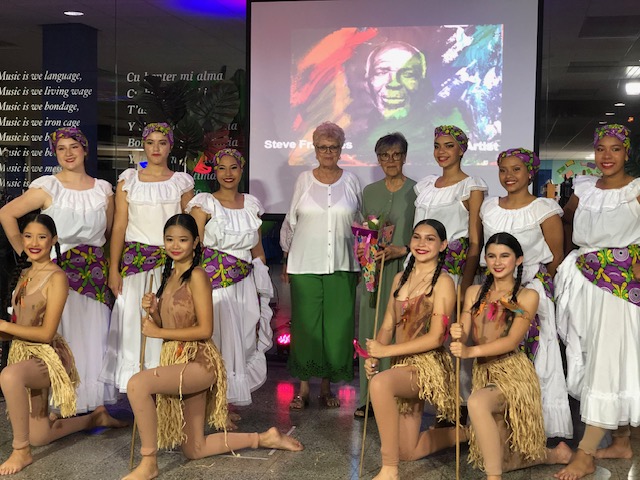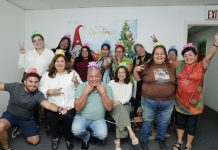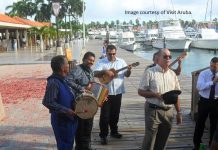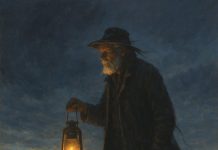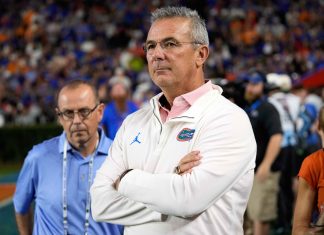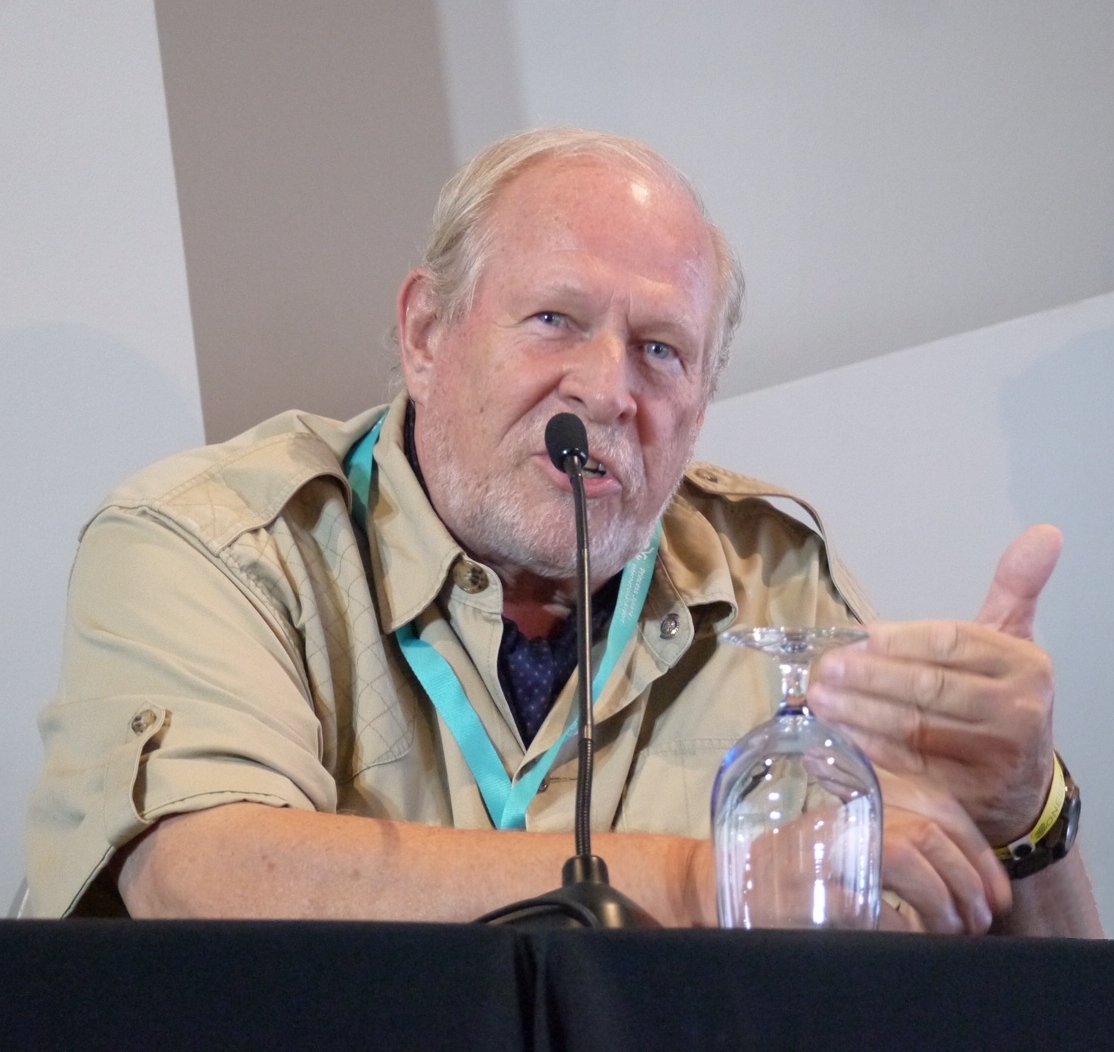During a colorful evening filled with music, dance, poetry, painting, and laughter, the National Library of Aruba, together with friends, companions, and art enthusiasts, celebrated Frida Winklaar-Domacassé. Winklaar-Domacassé is known as an admired author and poet for her literary works in which her love and deep interest in language are highlighted.
The enjoyable evening showcased a variety of arts touching on the themes of the love we have for our island Aruba, the origins and development of Papiamento, as well as our history during slavery times and our indigenous ancestry.
Cultural manager and host, Mirto Laclé, began the literary night with a brief presentation on the life and works of Frida Winklaar-Domacassé, particularly focusing on her latest literary work, “Adrinka,” which was recently presented in the Netherlands. “Adrinka” explores symbols with roots originating from Ghana and the Ivory Coast, which have similar meanings and reflect wisdom. In the same vein, other literary works were also highlighted, showcasing the impact and beauty of our Papiamento language.
The gathering also enjoyed other presentations, including art displays by painter and photographer Steve Francees; dances by the Club di Movemento group under the choreography of Samantha Westera-Juppa in cooperation with Vivian Maduro-Crespo; and poetry recitations by Ariana Koolman-Chirino, Aurelia Croes, and the Department of Culture’s own John-Freddy Montoya. Additionally, there were songs by Karina Maduro and live music by the band Ash & Friends. It is worth mentioning that during the event, each artist was also honored with a plaque, through which the National Library of Aruba expressed their appreciation for their contributions to the world of art in Aruba.
This gathering, although not attended by a large audience, was filled with laughter and enjoyment, and emphasized the importance of not only our art and literature but especially the influence we receive from all parts of the Caribbean and beyond. “There are ties (from other cultures) that bind us to the Caribbean in every sense, but we see it more culturally, in terms of education, literature, linguistics, and creativity,” Laclé expressed.


